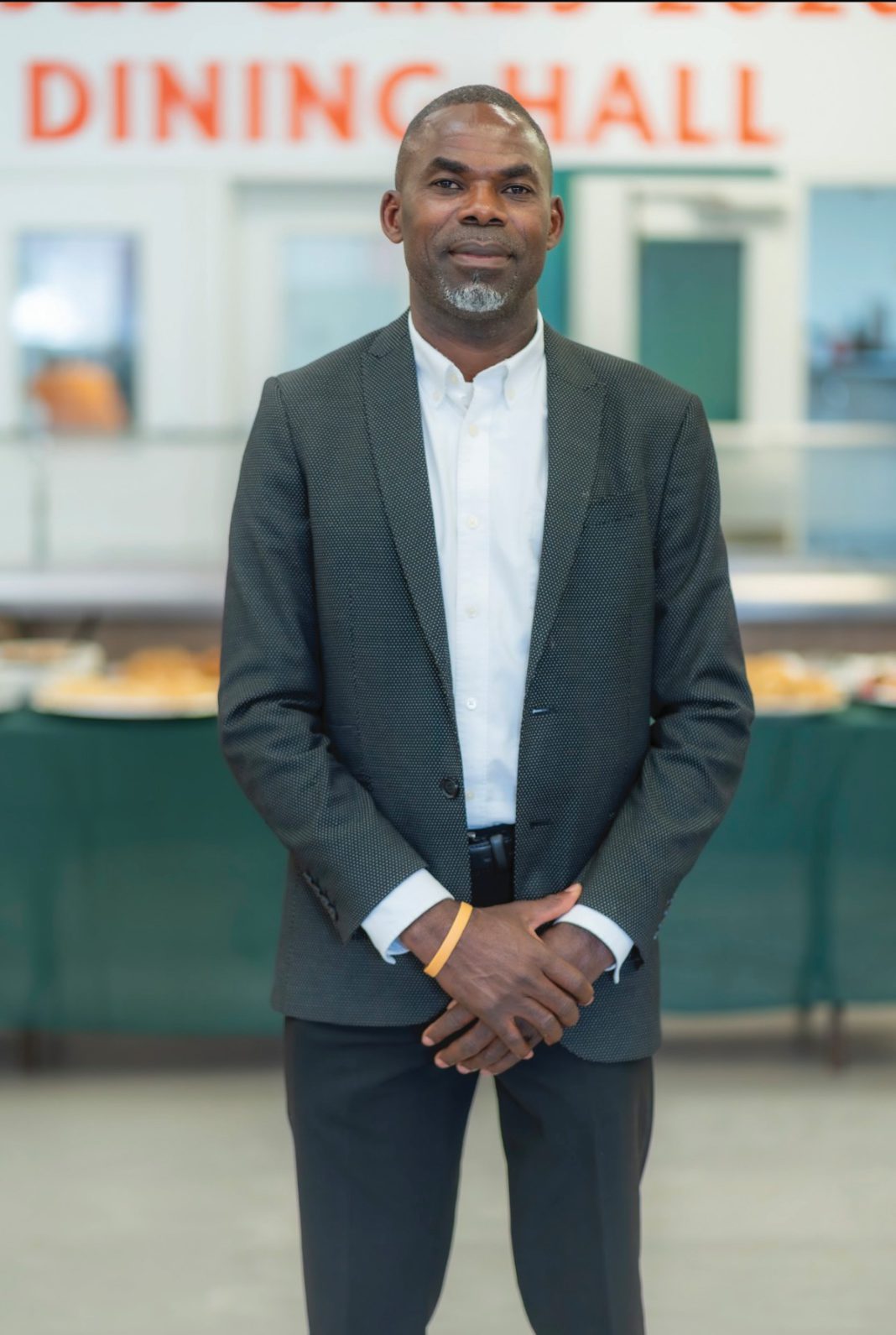This local story contains an American counter-narrative. It is about an immigrant putting food into the mouth of Americans.
The time is 4pm when I meet Saminuh Ojebola working over a broad steel kitchen table. He had just worked a full shift ending at 2pm.
Ojebola is a paid case worker for Social Vocations Services (SAVS), and executive director of Jesus Cares 2020. His goal is to help stabilize the circumstances of crisis-struck homeless people in the Sonoma Valley.
He brings them succor, emergency supplies and the offer of institutional support, pointing out the long path to permanent housing. Although he is supposed to work a caseload of 15 people, characteristically he works an overload of 22 souls.
By 4pm, he’s working his volunteer shift, preparing tomorrow’s lunch service at Jesus Cares. The steel table is covered with what seems to me random oddments—large boxes of unprocessed corn and fennel root, chopped asparagus, a box of Little Debbie snack cakes, an untidy heap of premade sandwiches. “More is coming,” he says, hopefully. Here is where the skill and imagination of a chef comes in, for each afternoon he finds the next day’s menu from among the random food donations that arrive.
Ojebola learned his chef skills in America, but cooking is in his blood. His mother was a cook with several hardscrabble venues in the bustling Lagos mega city, capital of Nigeria. His father, a retired soldier, modeled his discipline—and fight. Sitting now in the empty dining hall, he tells me about how his path diverged.
In 2020, he had another job, superficially similar, but in spirit quite different. He was sous chef and acting interim executive chef at the Keysight (formerly Agilent) cafeteria, overseeing the batch preparation of two daily meals for more than 200 employees. Outwardly, he had become a worldly success, but still he prayed each night for God to use him for some purpose aligned with his deeper values. One day, a volunteer, there to collect food donations, came with the news that Saint Vincent De Paul was closing their Santa Rosa food kitchen, in a pivot to focus on housing.
Hearing this, Ojebola remembered his own time living on the streets—as a new immigrant to New York. Friendless and starving then, he felt the life within himself fading. A fateful meeting on an escalator with a Yoruba-speaking stranger saved his life. She took him to her Bronx church where, in his affecting words, strangers “poured their love on to me.” He decided then and there to save the food kitchen. Saint Vincent DePaul offered him a lease of $1— though there would be bigger bills to follow.
Cincinnatus Hibbard: You and your team of five volunteers prepare and serve a daily lunch service for 75?
Saminuh Ojebola: Yes. But if there are 200 people, they will be fed. I want your readers to know that some of our volunteers are themselves unhoused. Homeless people are not lazy.
That is an important counter-narrative, Sam. Tell me about the space.
This is a safe space. It is two hours of getting out of whatever is out there. They can relax. And we treat them like a human. We welcome them. We value them. And that’s what we bring to the table—friendship, love and care.
Learn more: Sam Ojebola invites all to come visit during their lunch meal service. The Jesus Saves 2020 Food Kitchen is in steady need of volunteers and food donations (especially regular donations from businesses or farms). They also welcome cash donations. The utility bill for their walk-in fridge and freezer totals $9,000 a month. For Christmas, they are wishing for a delivery van. Visit jesuscares2020.org.






